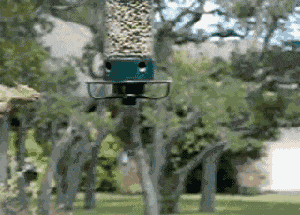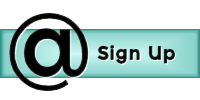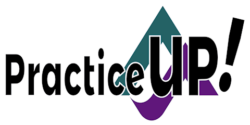When I first began working for myself, I found lots of “things” that needed to be done.
The phone rang – of course I needed to answer it! Email required immediate replies – or provided a link to something I just had to read, right then. Or, I needed to start dinner. Or I needed to water my plants. or… or… or….
I’m very easily distracted (“squirrel!”) and every little noise or interruption is far more fascinating than the one that came seconds before it!
As a result, I never felt like I was making progress. I had reports to file, marketing to do, web development, articles, and books to write… things that required chunks of uninterrupted time. But the only time that wasn’t interrupted seemed to be late nights or weekends.
I got into terrible habits, because the work – work I got paid for – needed to be done, and I was allowing all those interruptions to get in my way.
No more.
Today I walk away from my computer by 5 PM almost every day, and (OK, true confessions) while I still do a little bit of work on the weekends, it’s by choice and not by necessity. My work is mostly completed Monday through Friday, between early morning and 5 PM. I have a life.
So – what’s different? Mostly one simple thing: my attitude. I started thinking about my work differently.
Oh, I’m still just as passionate as I have been since beginning work with patients and advocates. And I’m still just as dedicated to improving journeys through the system. That part of my attitude hasn’t changed a bit.
What HAS changed is how I think about all those “things” – those tasks that always MUST be done. I finally realized that those interruptions were just eroding away the time when I could actually get something – lots of things – completed!
So I made a formal assessment of how I spent my day: email time, phone time, plant watering time, everything including the distractors. I realized that I gave just as much weight to answering email as I did to, for example, writing my books, or developing new initiatives. Whaaa? That made no sense!
Then I went through each task one-by-one and made very cognitive decisions about how to handle them so that those distracting tasks did get done (email received replies, phone calls were returned), but that the bigger projects were completed, too.
Here are some examples:
- I cleaned off my desk. I’m generally tidy, but I had all kinds of cute little tshatckes and knick-knacks like little travel momentos… fun, but so distracting! Now they are on shelves out of immediate eyesight. Boring! But conducive to getting my work done.
- I set up a business phone to be used only for business, and I don’t answer it after hours because I know it’s business. My voice mail message includes my office hours and no one seems surprised, nor do they expect me to answer, or even call them back, outside of business hours.
 By the way – the phone is free because it’s an internet phone (VoIP). Ooma. Look it up.
By the way – the phone is free because it’s an internet phone (VoIP). Ooma. Look it up.
- Further, sometimes I turn the phone off when I have a larger task I’m working on. If a call comes in, voice mail picks up, and I call the person back at my next available time. Voilà – a block of time. And no, I don’t worry about family trying to get a hold of me. Family can still reach me on my cell phone.
- Same with email. I use email addresses that are only for business. (My personal email is entirely separate.) I use Outlook (desktop) for email and if I need a chunk of time, I close Outlook and get on with my work.
- For both email and phone, maybe once each hour, I check to see if there’s something I need to attend to right away. If not, I handle it at the end of the day, or early the next day.
- Now here’s the real kicker: I also only schedule calls a few days a week, and never (OK, hardly ever) on a Friday. Friday is MY day. MY day to catch up, clean up before the weekend, make plans for the following week – whatever. If you listen to my voice mail you’ll see that’s reflected there, too – office hours are Monday through Thursday, 9 to 4 eastern time.
If you have challenges keeping up with your work, you might want to do an assessment too. Yours will look different because you do different things (you aren’t running a membership organization, and I’m not working one-on-one with patients!) But being very specific about how you manage your time can be an enormous time-freer, giving you much more time to complete larger tasks and projects.
The Most Important Attitude Adjustment…
… might surprise you, because it was not about my work. Instead it is about me, and what I deserve.
I adjusted my head.
 I deserve to have a life outside of work! That sounds a bit trite, but I LOVE my work and it’s too easy to blur those lines between what I do for others and what I do for me. So when I say the adjustment is about my head, it’s the recognition that there are many more things that make me happy, too (family, friends, golf, travel, stained glass work – to name a few) and it was UP TO ME to make my work life revolve around them, too.
I deserve to have a life outside of work! That sounds a bit trite, but I LOVE my work and it’s too easy to blur those lines between what I do for others and what I do for me. So when I say the adjustment is about my head, it’s the recognition that there are many more things that make me happy, too (family, friends, golf, travel, stained glass work – to name a few) and it was UP TO ME to make my work life revolve around them, too.
So this tip is simple: assess how you are spending your time, and then make adjustments. And, important, promise yourself you won’t fall back into bad habits.
The planning isn’t difficult. The actual adjustments and changes are more challenging.
But YOU can do it! No squirrels for you!
Like PUP! TIPS?
Subscribe to find a new tip in your inbox twice a month! Sign Up for TIPS
Sign Up for TIPS

